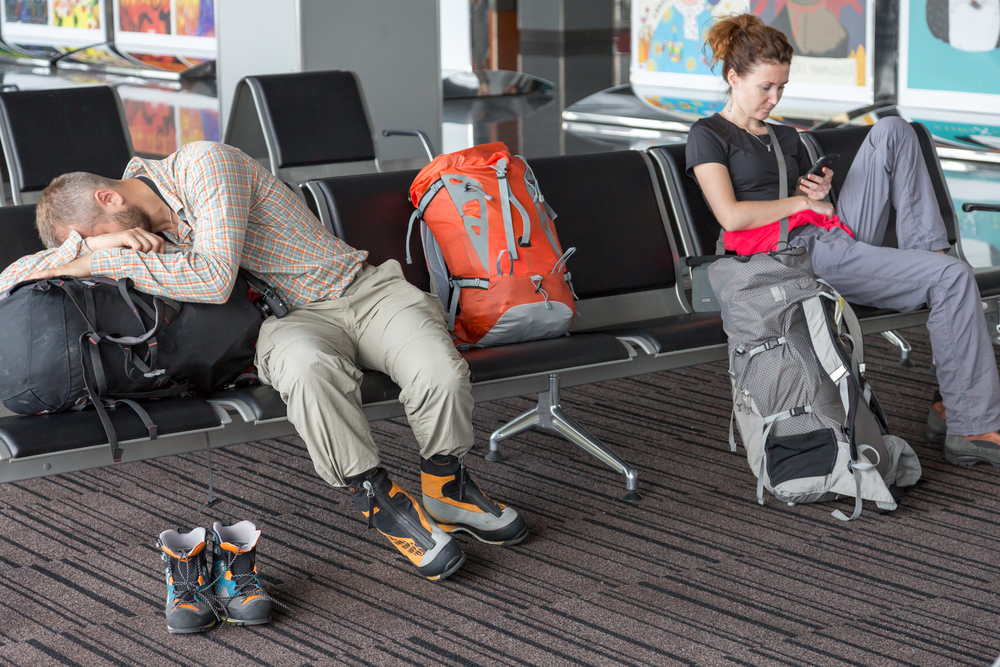Household Bills
Flight compensation rules shake-up on the way

Air passengers could receive a 25% refund of their ticket price for hour-long delays in suggested changes to flight compensation rules.
The proposal is one of a number of ideas put forward by the government to strengthen airline passenger rights for delayed flights and protection for disabled passengers.
UK flyers can currently claim compensation for delayed flights under the European Union’s EU261 rule. This means passengers on flights shorter than 1,500km (932 miles) can claim £220 for delays of more than three hours – but there’s no compensation for shorter hold-ups.
The government says that the UK’s exit from the EU means it can bolster airline passenger protections and rights, and amend the compensation process for delayed UK domestic flights.
Some of the government’s proposals are based on the current compensation model used by rail and ferry customers. This will see a shift away from the current ‘set rate’ model and see compensation linked to the length of the flight delay and the cost of travel.
One proposal is that for delays to domestic flights of one to two hours, passengers will be entitled to compensation of 25% of their ticket price. Delays of two to three hours will generate compensation of 50%, while hold-ups of three hours or more will mean compensation of 100% of the ticket price.
The government is also considering mandating all airlines to be part of the aviation Alternative Dispute Resolution (ADR) scheme. This would give consumers a route for escalating certain complaints that can’t be settled between the consumer and airline without needing to go to court.
In the current setup, there are two ADR providers in the UK and airlines can join voluntarily. Under the new proposals, all airlines would have to join a scheme, giving customers access to this dispute route regardless of who they fly with. This could help people who are struggling to get refunds when they are entitled to them.
Grant Shapps, transport secretary, said: “People deserve a service that puts passengers first when things go wrong, so today I’ve launched proposals that aim to bolster airline consumer protections and rights. We’re making the most of our Brexit dividend with our new freedoms outside of the EU and this review will help build a trustworthy, reputable sector.”
Rocio Concha, Which? director of policy and advocacy, said: “For years, passengers have been let down by some companies in the travel sector, battling to be heard or to get the compensation they are owed when things go wrong.
“Trust in travel plummeted further during the pandemic when some airlines ignored their legal obligations and refused to pay refunds for cancelled flights. This consultation is a welcome first step that must improve and strengthen consumer rights and protections so that complaints are dealt with fairly and promptly, and that passengers receive the money they are due quickly and without unnecessary hassle.
“It is also vital that the system is backed up by a regulator with the powers it needs to take swift and strong action against any company that breaks consumer law.”
The government plans also consult on mandating that airlines provide wheelchair users and people with reduced mobility with the full amount of compensation for any damage caused to their wheelchair or mobility scooter during a domestic UK flight.
At present, under legacy rules, airlines are not mandated to cover the cost of repairs, even if the device is damaged while in their care.
Caroline Stickland, chief operating officer at Transport for All, said: “Having your wheelchair or mobility aid lost or damaged by an airline doesn’t just put a damper on a holiday. It can mean a total loss of independence and mobility.
“Much more needs to be done to safeguard against this, including fair recourse to compensation for disabled passengers. We welcome these proposals and hope they mark the start of further positive changes in this area so that disabled people, whatever their access requirements, can travel with security and confidence when using airlines.”